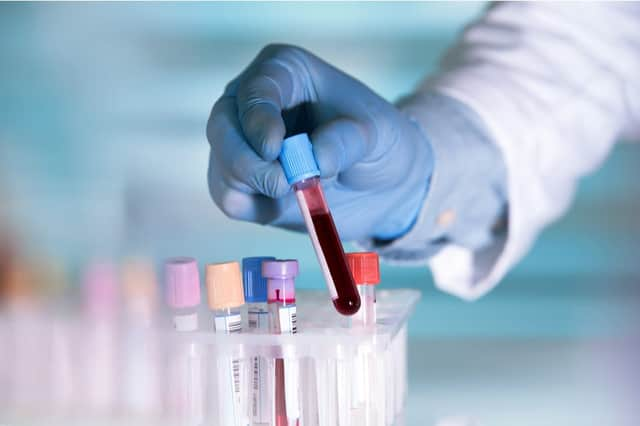A new blood test could spot Alzheimer's disease years before symptoms appear


Alzheimer’s disease could be detected at its earliest stage, years before symptoms start to appear, thanks to a new blood test.
Scientists from the US and Sweden have found that levels of a specific tau protein which is typically elevated in people with the illness can be detected in blood.
Detects Alzheimer's 20 years before symptoms develop
Advertisement
Hide AdAdvertisement
Hide AdThe blood test looks for tiny amounts of a protein called p-tau217, which research suggests is elevated in the early stages of the disease.
Scientists reported results of multiple studies on blood tests for abnormal versions of the tau protein, with one able to detect changes in the brain as early as 20 years before dementia symptoms occur.
The build up of this protein is thought to correlate with cognitive decline, but at present, only scans and tests of spinal fluid can detect the brain changes that occur before symptoms of Alzheimer’s surface. However, such methods are both expensive and invasive.
Alzheimer’s is currently diagnosed using a combination of memory tests and brain scans, but this is not usually done until symptoms have already appeared.
Advertisement
Hide AdAdvertisement
Hide AdThe disease causes damage to the memory, along with other cognitive functions, by destroying connections between nerve cells in the brain. Proteins then build up in the brain and cause these cells to die.
These latest findings now indicate that a blood test which is able to detect the protein associated with Alzheimer’s could be used to help diagnose people at a much earlier stage.
Potential early diagnosis
In these recent studies, presented at the Alzheimer’s Association International Conference 2020, researchers identified a highly accurate, blood-based biomarker for detecting the disease by measuring levels of the protein in blood.
Three different cohorts of more than 1,400 cases were assessed, with results showing that the protein common in Alzheimer’s patients could be distinguished from other neurodegenerative disorders with 89 to 98 per cent accuracy.
Advertisement
Hide AdAdvertisement
Hide AdIf the test could help to give patients early diagnosis, it could offer more opportunities to treat the disease.
Dr Oskar Hansson, from Lund University in Sweden, said, "This test, once verified and confirmed, opens the possibility of early diagnosis of Alzheimer's before the dementia stage, which is very important for clinical trials evaluating novel therapies that might stop or slow down the disease process."